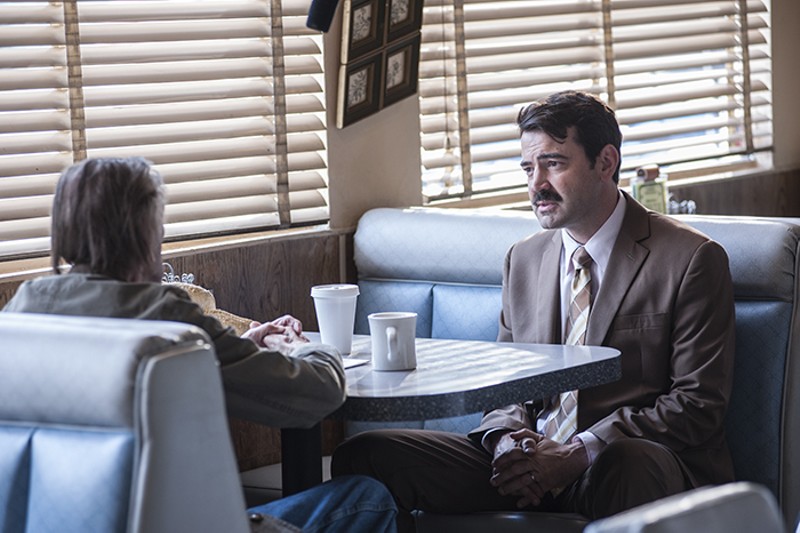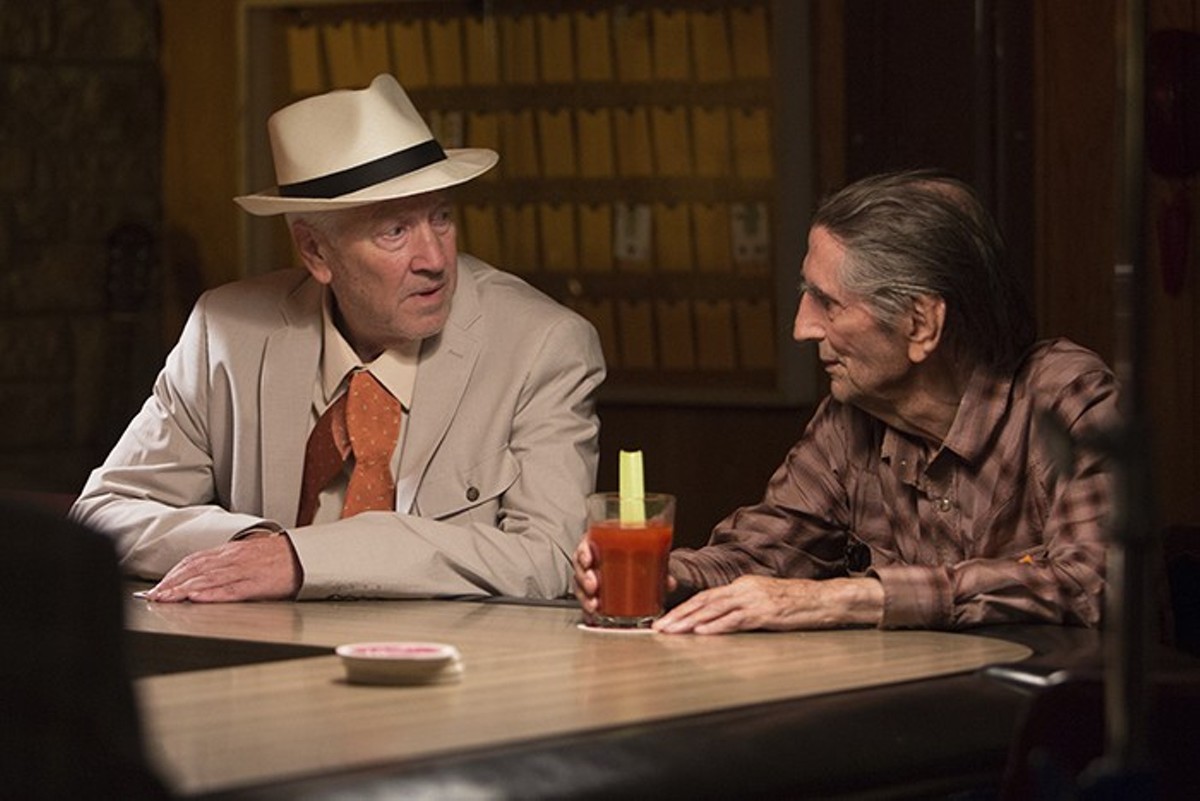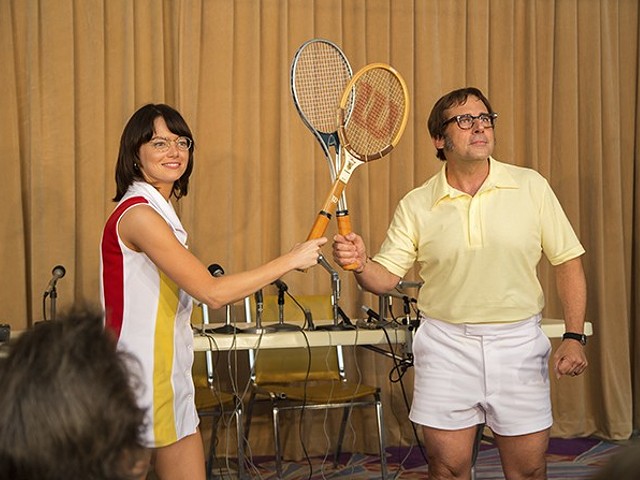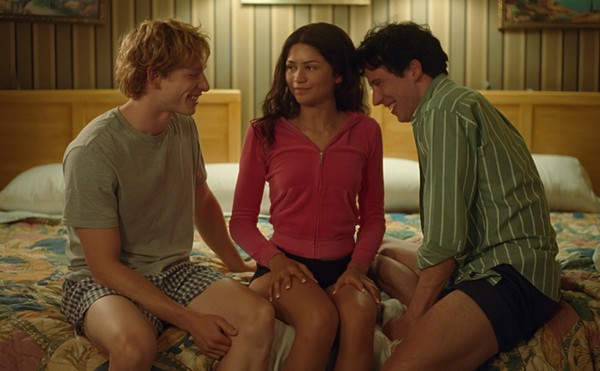Harry Dean Stanton, who died on September 15 at the age of 91, was an actor's actor, appearing in dozens of films, from B westerns and biker films to The Godfather Part II and Alien. He always stuck out in even the smallest roles as a man who probably had a pretty good story to tell, if only someone would ask. In Wim Wenders' Paris, Texas, his greatest performance and his first starring role, he barely spoke at all, but the burden of silence was written on his face, driving him to near madness. A reluctant actor — he frequently walked away from Hollywood in favor of making club appearances singing Mexican ballads — Stanton seemed to draw on a private Method, a simple, honest approach to character that relied less on the boiling emotions of the Kazan/Strasberg school than on a kind of open-hearted and bemused empathy.
Lucky, Stanton's only starring role since Paris, Texas, is part homage to the actor (the screenplay was co-authored by Stanton's personal assistant, adapted from anecdotes he heard on the job), part laid-back lesson in sagebrush surrealism, and both parts equally enjoyable. Stanton is leaner and frailer than in Wenders' 1984 film — it's been more than 30 years, after all — and while he's not catatonic like the earlier film's Travis, he is so soft-spoken that his voice seems to have retreated far into his body. As always, he's a compelling presence, whether he's bursting into an impromptu ballad, struggling to convey an abstract belief or simply kicking a can down the street with Chaplinesque abandon. It could be seen as a companion piece of sorts to this year's earlier The Hero, another film about a proud man growing old, but where that film showed Sam Elliott dealing with glamorous matters like celebrity, Lucky sets its sights solely on ordinary living, the day-to-day struggle of getting out of bed and facing another day.

The eponymous hero lives in a small town somewhere in the California desert. He follows a strict routine — exercise in the morning, a walk to the local diner for coffee and the daily crossword puzzle, afternoons watching game shows and an evening appearance at the local bar — with a determination that suggests some hidden pattern of logic known only to himself. He doesn't speak much, but you get the sense that he's always thinking, making small revisions to a lifetime of deep thought.
Directed by the actor John Carroll Lynch (who played President Johnson in last year's Jackie), Lucky is a rambling shaggy-dog story structured around Stanton's encounters with his neighbors and not-quite-friends. David Lynch (who is no relation to the film's director) appears, trying to tone down his usual calculated weirdness as a man whose only companion — a tortoise named President Roosevelt — has run away. Stanton's fellow Alien cast member Tom Skerritt drops by to swap war stories. Even more unexpectedly, 1960s teen idol James Darren turns up as an amiable lounge lizard, suggesting a more carefree Christopher Walken.
At its best, Lucky strikes a balance between a kind of (David) Lynchian absurdity (without that director's patronizing attitude for the "ordinary") and a loose cowboy lyricism. There are frequent allusions to a kind of Southwestern Buddhism, as when Lucky and his pals greet each other with a cheery "You're nothing," or when Lucky asks the diner's chef (Barry Shabaka Henley) "Is realism a thing?"
Director Lynch tosses in a few references to his star's film career — a nod to the opening shots of Paris, Texas, a special effect of a glowing doorway that recalls Repo Man — but they're discreet. This is a tribute to his lead player, not a fawning nod to movie cultism. To a large degree, it's a film about a man realizing, as doctor Ed Begley Jr. tells him, that he's "old and getting older," coming to terms with it and using that knowledge to define his place in the universe.
Is that man Lucky, or is he Stanton? It's not clear, but perhaps that doesn't matter. Lucky has a past, although we don't learn much about it. The important thing is that he knows he has a past, by virtue of being 90 years old. This is the realism that he learns to accept, and the details behind it are his business alone. As far as he cares, his very existence confirms his essence. This may not be a particularly profound observation — at best, it's a kind of sand blown New Age thinking — but it's his, and he's earned it.






